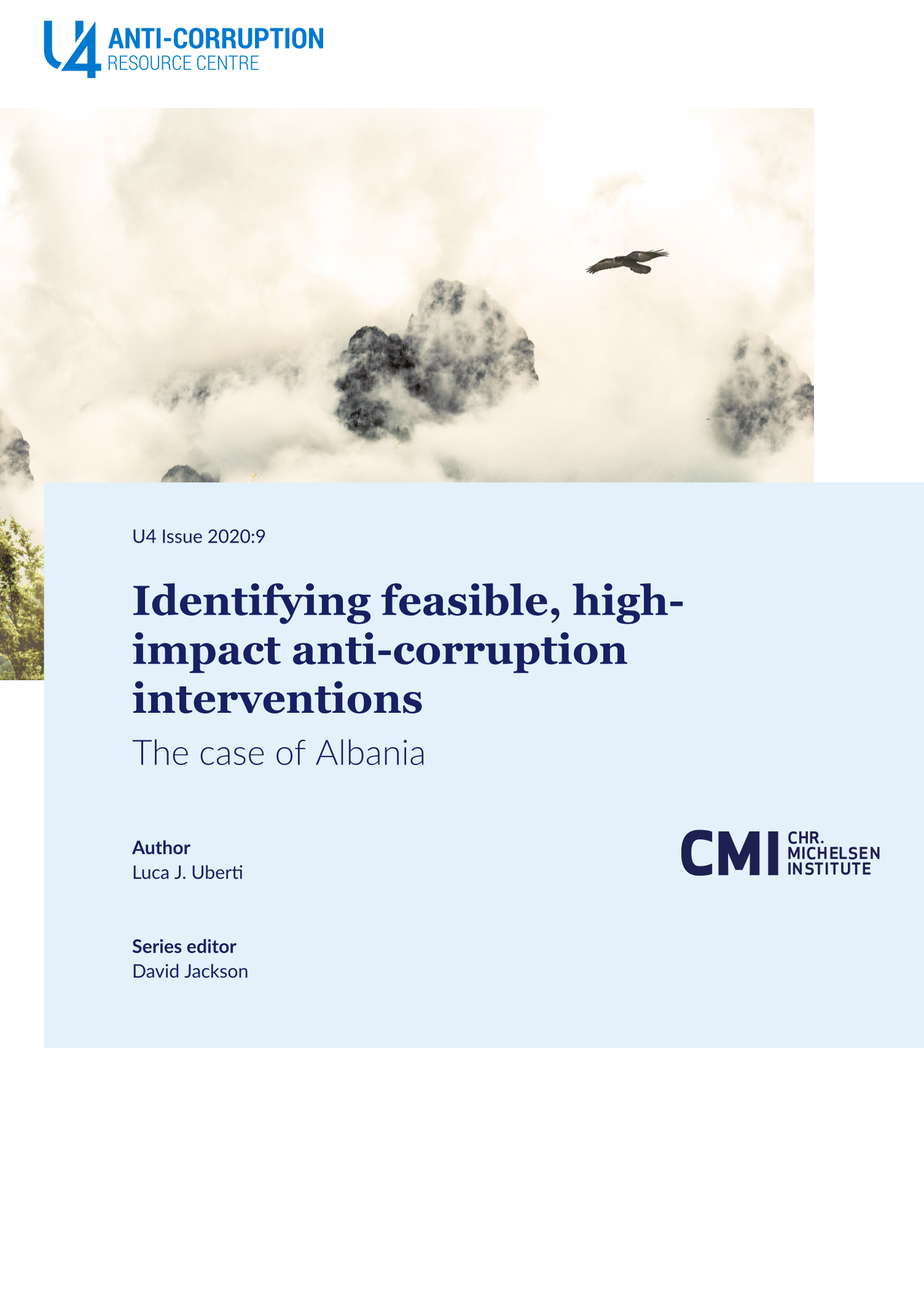Main points
- In low- and low-middle-income economies, the primary aim of development practitioners should not be to reduce corruption across the board by establishing or strengthening a national legal-institutional framework for anti-corruption. Rather, practitioners should target their efforts to specific spaces (or ‘sectors’) where corruption is particularly damaging and donor interventions are less constrained.
- In these sectors, anti-corruption reforms are more likely to be both impactful, in that they promote important development outcomes, and feasible, in that implementation failure is less of a risk. Sectors with a favourable combination of impact and feasibility should be targeted and prioritised at the level of programming and budgeting.
- Having selected a favourable space or sector for intervention, practitioners should identify specific corruption practices in the sector and classify them along the impact and feasibility dimensions. Successful anti-corruption interventions will target corrupt practices that are very damaging but also amenable to change.
- In promising sectors, it is important to identify and mobilise actors who are motivated to drive and/or demand change.
- In Albania, education is a sector in which targeted anti-corruption interventions could have a relatively large positive impact, albeit subject to the feasibility constraints imposed by the political and economic context. In the short to medium term, donor agencies and anti-corruption practitioners should consider targeting efforts to this sector.
- Within the education sector, practitioners should think about creative ways to mobilise the student movement in the fight against corruption. A pay-for-performance system, a reform of academic promotions, an awareness-raising campaign, and use of external monitoring when allocating research funds are potentially promising anti-corruption tools that warrant further consideration.
- In order to plan and implement evidence-based interventions, donors should also gather and analyse more systematic evidence on the correlates and determinants of education-specific corruption in Albania.


